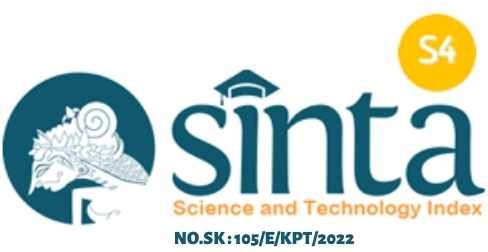PENGARUH DIMENSI ZAKAT, MONEY ETHICS, DAN SOSIALISASI PAJAK TERHADAP KEPATUHAN WAJIB PAJAK PADA UMKM DI SURABAYA
DOI:
https://doi.org/10.34128/jra.v6i2.299Keywords:
Zakat, Money Ethics, tax socialization and compliance with tax dutiesAbstract
The objective of this study is to examine the influence of the zakat dimension, money ethics, and tax socialization on the level of compliance with compulsory personal tax among small and medium-sized enterprises in the Surabaya region. Basic research, which aims to improve and enhance current theories while also expanding knowledge, This study incorporates three distinct research variables, including tax socialization, money ethics, and the zakat component. The study employed a sample size of 100 respondents, who were selected from the population of taxable persons and individual perpetrators of the UMKM Islamic religion in Surabaya. The distribution of the sample was conducted using a questionnaire, which was administered to individuals registered with the KPP Pratama Surabaya. The present study used a multiple linear regression analysis for data analysis. The findings of the study indicate a significant positive correlation between taxation dimensions and tax socialization and compliance with tax duties. Conversely, the variable of money ethics exhibits a significant negative association with tax compliance.
References
Ariyanto, D., Weni Andayani, G. A. P., & Dwija Putri, I. G. A. M. A. (2020). Influence of justice, culture and love of money towards ethical perception on tax evasion with gender as moderating variable. Journal of Money Laundering Control, 23(1), 245–266.
Fauziah, F. E., & Murharsito, M. (2019). The effect of money ethics on ethical attitutes with religiosity as the moderating variable. Media Ekonomi Dan Manajemen, 34(1).
Hwang, S., & Nagac, K. (2021). Religiosity and Tax Compliance: Evidence from US Counties. Applied Economics, 1–13.
Lau, T.-C., Choe, K.-L., & Tan, L.-P. (2013). The moderating effect of religiosity in the relationship between money ethics and tax evasion. Asian Social Science, 9(11), 213.
Mohdali, R., Benk, S., Budak, T., MohdIsa, K., & Yussof, S. H. (2017). A cross-cultural study of religiosity and tax compliance attitudes in Malaysia and Turkey. EJTR, 15, 490.
Muslichah, M. (2015). THE EFFECT OF TAX SIMPLIFICATION ON TAXPAYERS’COMPLIANCE BEHAVIOR: RELIGIOSITY AS MODERATING VARIABLE. Jurnal Keuangan Dan Perbankan, 19(1).
Obaidullah, M., & Manap, T. A. A. (2017). Behavioral dimensions of Islamic philanthropy: The case of zakat. Financial Inclusion and Poverty Alleviation: Perspectives from Islamic Institutions and Instruments, 219–243.
Pitaloka, L. K., Kardoyo, K., & Rusdarti, R. (2018). The socialization of tax as a moderation variable towards the taxpayer compliance of industrial performer in kudus regency. Journal of Economic Education, 7(1), 45–51.
Putranti, T. M., & Rafli, A. (2020). Implementation of Value Added Tax Policy on Pharmaceutical in Indonesia. ICAS-PGS 2019: Proceedings of the 3rd International Conference on Administrative Science, Policy, and Governance Studies, ICAS-PGS 2019, October 30-31, Universitas Indonesia, Depok. Indonesia, 265.
Rahayu, S. K. (2010). Perpajakan Indonesia: konsep dan aspek formal. Yogyakarta: Graha Ilmu, 123.
Sardžoska, E. G., & Tang, T. L.-P. (2012). Work-related behavioral intentions in Macedonia: Coping strategies, work environment, love of money, job satisfaction, and demographic variables. Journal of Business Ethics, 108, 373–391.
Savitri, E. (2015). The effect of tax socialization, tax knowledge, expediency of tax ID number and service quality on taxpayers compliance with taxpayers awareness as mediating variables. Procedia-Social and Behavioral Sciences, 211, 163–169.
Sekaran, U., & Bougie, R. (2019). Research methods for business: a skill building approach 5th edition. John Wiley.
Stack, S., & Kposowa, A. (2006). The effect of religiosity on tax fraud acceptability: A crossâ€national analysis. Journal for the Scientific Study of Religion, 45(3), 325–351.
Tang, T. L.-P., & Chiu, R. K. (2003). Income, money ethic, pay satisfaction, commitment, and unethical behavior: Is the love of money the root of evil for Hong Kong employees? Journal of Business Ethics, 46(1), 13–30.
Vousinas, G. L. (2017). Shadow economy and tax evasion. The Achilles heel of Greek economy. Determinants, effects and policy proposals. Journal of Money Laundering Control, 20(4), 386–404.
Wang, J., & Lu, J. (2021). Religion and corporate tax compliance: evidence from Chinese Taoism and Buddhism. Eurasian Business Review, 11(2).
Wogo, P. P., Fadjarenie, A., & Tarmidi, D. (2023). Tax Socialization For Corporate Taxpayer, Is It Important? Jurnal Akuntansi, 27(2), 218–241.
Yuniarta, G. A., & Purnamawati, I. G. A. (2020). Spiritual, psychological and social dimensions of taxpayers compliance. Journal of Financial Crime, 27(3), 995–1007.
Yusdin, Y., Bulutoding, L., & Suhartono, S. (2020). AKHLAKUL KARIMAH SEBAGAI PEMODERASI FAKTOR-FAKTOR PENENTU PERILAKU KEPATUHAN WAJIB PAJAK. ISAFIR: Islamic Accounting and Finance Review, 1(2), 1–13.
Downloads
Published
How to Cite
Issue
Section
License
Copyright (c) 2023 Riesanti Edie Wijaya, Okti Purwomiranti

This work is licensed under a Creative Commons Attribution-NonCommercial-ShareAlike 4.0 International License.













